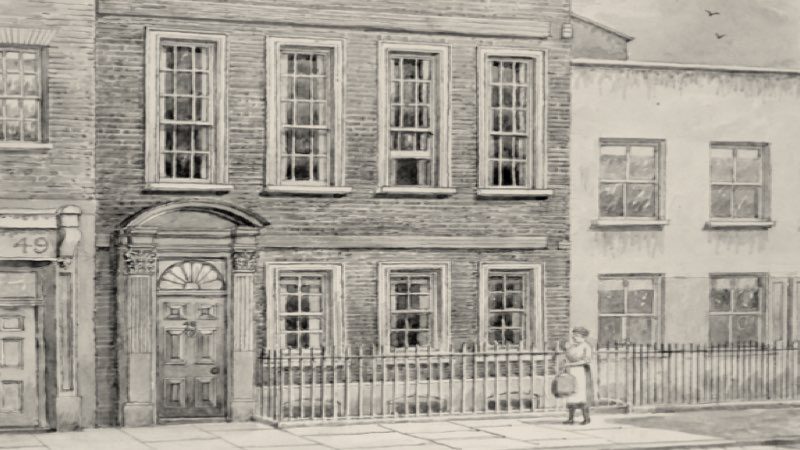
The Life And Testimony Of Rachel Gadsby (Bibby)
Gospel Standard 1858:
On the wrapper of the “Gospel Standard” for April, 1858, the death of the above, Mr. Gadsby’s youngest daughter (Phebe Hamer), was announced; and on the wrapper for the following month the death of Rachel Bibby, his eldest daughter, was published. With respect to the latter, as so much room has been taken up by the former, we shall content ourselves by giving only the following:
“I cannot hesitate in saying that I most certainly believe Mrs. Bibby was a dear redeemed child of the covenant; and though she was not enabled to make an open profession of the name of Jesus, she was a pattern to many. I have watched her attentively for the last ten years with peculiar feelings, looking for answers to prayers long filed in Heaven, presented by one who had a father’s heart, as also a Christian’s, and who was a friend and pastor over the flock at Manchester, and servant of the Most High God. I have often prayed for answers to his prayers; and though this may to some seem strange, nevertheless so it is; and, moreover, I have obtained many answers to such prayers in my own soul, and on the Church as a whole. Our dear departed friend, for the last several years, as you know, was very poorly; but it must indeed have been a wild Tuesday evening if she were not among the hungry ones in Rochdale Road Chapel, Manchester, in the corner of her pew. She was, indeed, ‘poor in spirit,’ ‘a longing soul,’ ‘hungering and thirsting’ for covenant mercies and fellowship with the Lord Jesus. When first I made inquiries about her hope for eternity, she seemed very agitated, and was evidently not expecting the question; but before long she laid herself open on the subject, and told me she had long been a poor sensible sinner, and all she could do was to pray for mercy, though sometimes she could not do that. On one occasion she was much comforted by these words: ‘The mercy of the Lord is from everlasting to everlasting towards them that fear him.’ These words long supported her, giving her much comforting hope. On another occasion a sermon was preached from the words, ‘The mountains shall depart, and the hills be removed, but my kindness shall not depart from thee, neither shall the covenant of my peace be removed, saith the Lord that hath mercy on thee.’ She took an early opportunity of conveying to me a little of her joys, and she added, ‘O, if I could but keep the feelings I enjoyed on that occasion, how happy I should be!’ adding, ‘But I have such a sinful heart no one knows.’ She well knew the doctrines of grace in all their beauties, but felt so little of the power, as she said, that she was ashamed lest the friends should think she wished to suppose herself one of the Lord’s. A most unassuming, retiring, humble soul she was, and one who could express herself in tears and trembling much more effectually than in plain language. Often have I seen her weep and tremble, smile and sob, when she could do no more. She had sorrows and cares none knew fully but herself. The follies of others cost her many sleepless nights, and sent her often to a throne of grace on their behalf. Now she is gone, some will miss the friendly smile and motherly advice, nay, the remembrance of the departed sinks deeper into the heart than ever did the love correction she imparted in her life. She is gone where the wicked cease from troubling, and where the weary are at rest.
“Manchester, April 22, 1858.
A. B. Taylor
She died on the 19th of April, 1858, in her 59th year. Her complaint, like Mrs. Earner’s, was an affection of the heart, with paralysis.
Rachel Gadsby (Bibby) (1799-1858) was a sovereign grace believer. She was the eldest daughter of William Gadsby. Although she did not make a public profession of faith, her hope was in the Lord and her private testimony brought forth evidence of a work of grace in her heart.



